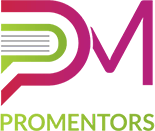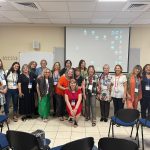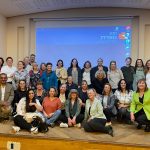Following the kick of meeting at the Talpiot College on February, and since the focus was on WP1 and WP2, a great progress was achieved by the leaders of both WPs.
WP1 held a very wide culture review in order to understand the project’s starting point and examined the different existing models of mentoring in Israel and worldwide.
WP2 and based on WP1 report, created an interesting diagnostic Tools for collecting current Data from the Field regarding various Frameworks involving mentors, working in linkage with MITs, for promoting beginning teachers, in the spirit of the clinical-collaborative approach.
During March and April, all the PROMENTOR’s activities were held online due to COVID-19 and the field visit to the University of Jyväskylä- Finland will also be replaced with a 3 days virtual meetings around June, 2020.
The preparation work in WP1 continued intensively, led by Kaye College and the University of Bucharest, to construct a comprehensive description of five mentoring models built upon the experience gained by our European partners: the PGM (Peer Group Mentoring) Model at Jyväskylä, Finland; Lesson Study at the University of Exeter, U.K.; Community Mentoring at the Catholic University, Poland; and Reverse Mentoring and the SDT (Self-Determination) models at Kaye College. All the five models were presented and discussed during our PMB virtual Zoom meeting on July 6-8, 2020.
WP2 worked intensively to finalize its work to produce guidelines for designing mentors’ courses in the MITs. The guidelines were based on the 5 above mentioned models, incorporating intensive field work to identify the existing culture of mentors’ involvement in the MITs, combined with the Ministry of Educations’ paradigms for mentors’ training in Israel. A comprehensive report, based on qualitative analysis of 25 semi-structured interviews of school officials, policy makers, mentors and MITs mediators and which focused on the stakeholders’ perceptions of the mentors’ role in school, was presented during the July, 2020 PMB.
WP4 finalized the internal evaluation plan that targeted the quality of work done in the different WPs and an assessment of the mentors’ courses in the MITs. The assessment is based on what was promised in the technical annex (the LFM) of the project and the objectives of the project. The plan was presented and discussed by partners in the July 2020 PMB meeting.
WP5 dissemination strengthened the reporting on dissemination done at all partners’ institutions through an advanced Excel table, user -friendly and easily filled in by all partners.
WP6 management focussed on preparing all partners (through various e-meetings) to touch base with the reporting tools and procedures needed for the daily management. of Promentors.
I am text block. Click edit button to change this text. Lorem ipsum dolor sit amet, consectetur adipiscing elit. Ut elit tellus, luctus nec ullamcorper mattis, pulvinar dapibus leo.
The Israeli colleges devoted much time and energy into structuring the mentors’ course in the MITs. Two days of workshops, on August 24 and 26, 2020, were devoted to discussion and preparation of syllabi for mentors’ courses in the MITs. One of the challenges of the first pilot (starting at the end of October) is to create a new syllabi based on the Promentors’ paradigm instead of the existing syllabi for mentors’ courses that the colleges are used to coordinating. After the August meeting, it was clear that there is a need to create a template with clear instructions on how to design the mentors’ courses in the MITs. A special team, built of representatives of WP1 & WP2, created the template and presented it to the Israeli monthly meeting in October 2020.
A two-day virtual Zoom workshop to study the PGM model, which was coordinated by the Jyväskylä, Finland team, took place on September 7-8, 2020. During the workshop, all the consortiums’ partners had the opportunity to study the model in depth. The mediators shared their experience with conducting mentors’ courses that emphasize groups’ dynamics of mentors and mentees who meet together to discuss and share pedagogical ideas and teaching challenges.
Parallel to this process, WP3 began to organise the implementation and reporting of the initial stages of the pilot. The pilot of the mentors’ courses in MITs was started in four of the colleges in October 2020 and others will start in the coming month of November 2020.
Work in WP4 continued with the designing and refining of the instruments (questioners, interviews) which will be used in the assessment of the mentors’ training.






